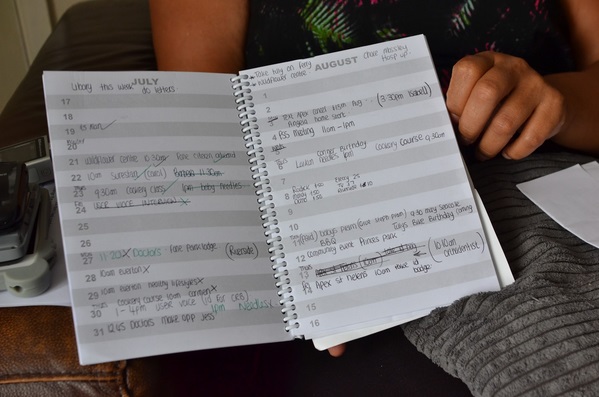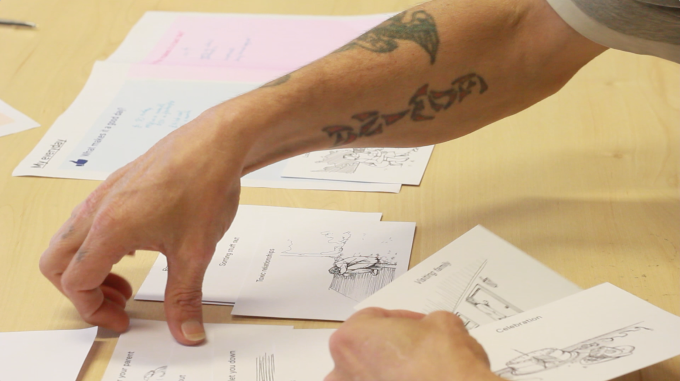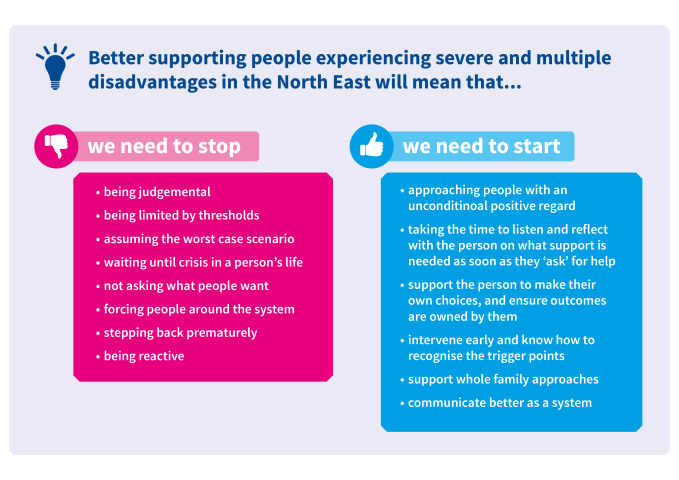Toby Lowe: Complexity, Autonomy & Trust
In this guest blog, Toby Lowe, Senior Research Associate at Newcastle University Business School talks about overcoming missed opportunities for vulnerable people, and about how to create lasting, sustainable change that helps them to thrive.
“The stories of people who have taken part in Hard Edges are fascinating, inspiring and incredibly frustrating. For me, the frustration arises significantly from the numerous missed opportunities where services could have intervened and helped these vulnerable individuals. In this piece, I’m going to offer an explanation of why so many opportunities to help are missed, and what we can do about it.
Complexity
The Hard Edges stories reveal the knotted and complex reality of people’s lives that don’t fit neatly into service silos, nor service offers based on linear pathways. James’ story, for example demonstrates that he’s not just a person with substance misuse problems – he was a worker, he is a son, he is a father, he is someone who’s been in prison. He is a person whose life has been touched by many different factors, all interacting in complex ways.
Similarly, Natasha isn’t just a woman who has been struggling to keep a family together. She’s a daughter, a neighbour, a mother, a partner, a learner, a person in recovery. She’s been all these things, and a hundred more, at different points on her personal journey.
To recognise and act on an opportunity to intervene and help a person who is struggling with some aspect of their lives requires an understanding of the complexity of lives as they are lived, transition-to-transition, day-to-day. This means genuinely getting to know the person, and building a relationship with them.

Autonomy
To know when and how to intervene requires someone who has the freedom to build relationships on whatever timescale people like James or Natasha can work to. It requires the freedom for them to work together to create specific goals that they want to work towards, rather than working to prescribed outcomes set by others.
It requires the freedom to revise and adapt those goals, in whatever way is suitable for them at different points in time – sometimes they’ll need to be challenged, sometimes they’ll need an arm around their shoulder. Sometimes they’ll need a specialist service – like in-patient rehab or psychotherapy – sometimes they’ll just need someone to go for a coffee with.
It requires the freedom for these interventions to ‘fail’ – for James or Natasha not to achieve their goals, to relapse, and still the person will maintain a relationship with them, in whatever way makes most sense.
Complexity requires autonomy. The only way we can successfully respond to the complexity of the system, and the lives of people who experience severe and multiple disadvantage, is to grant the freedom for people to build deep relationships with people in need, and to respond to their needs (and strengths) in whatever way is appropriate for them. If other people – managers, commissioners, politicians – try to prescribe what to do they will fail, because they do not have the necessary understanding to make those decisions. Only those at the frontline do, because they have the detailed understanding to make sense of it.

Trust
Autonomy requires trust. The managers of frontline staff need to trust the decisions that they make, and help those staff make even bigger and better judgements. Trust means knowing enough about a person or organisation to make a judgement that they’re the right person or organisation for the job, and then giving them autonomy whilst creating the best conditions to exercise that judgement.
Trust requires new forms of accountability – new ways to manage performance – perhaps by making people accountable to their peers for the quality of their practice. We could start by asking the question: ‘what is a good reason to trust an organisation?’ Part of that answer might be that they make their practice transparent to their peers: that their staff talk honestly about the uncertainties they face when doing their jobs, among themselves, and with people from other organisations. That everyone is committed to improving their judgement by talking about the detail of how they make those judgments with others. They could ask one another: “Should I have challenged Natasha about her drug use early in our relationship, or should I have concentrated on building up her trust?” “James’ drug use seemed so entrenched, I didn’t know what to do. What could I have done?” By openly and authentically discussing the uncertainties of practice with peers, everyone’s judgement improves.

This is part of how we create the best system we can – one which gets the next James or Natasha the help they need at early intervals, rather than waiting until crisis point. We need a new approach to the performance management of the services that support people in need. We need to work out what are good reasons to trust, and let those people and organisations get on with it, whilst supporting them to make better judgements by making them accountable to one another.”
Toby Lowe
Senior Research Associate
Centre for Knowledge Innovation Technology & Enterprise (KITE)
Newcastle University Business School
Toby attended our latest storytelling workshop in Newcastle. You can read more about him here:
http://www.ncl.ac.uk/kite/staff/profile/toby.lowe
Twitter: @tobyjlowe

Leave a comment